|
Douglas Silas,
Specialist SEN Solicitor 19th July 2021
We all need to recharge our batteries once in a while...
Rest is very important and, although ideally for me, you should really rest at least once a week, I know that this doesn't always feel realistically possible for a lot of people. But imagine that you are a mobile phone battery, you still need to recharge yourself every night and then keep things topped up regularly to work properly - your mobile phone will not go on forever without being recharged! Everybody needs a break from time to time, to allow themselves time to rejuvenate properly. Even a change is as good as a rest they say. In fact, most of the time, you cannot just stop and start again instantaneously, but you need to let yourself unwind gradually, before being able to rest properly. It's like creating a regular time to wind down every night in a routine before being able to get a good night's sleep, Things like this just don't happen - you need to properly plan for them to happen. And remember, you are not as important or as indispensable as you think you are. The world will go on without you for a little while, believe me. Also, there's no good supposedly taking a holiday but then still thinking about work. You need to properly switch off to really get the benefit of a rest, otherwise it is not a true rest and you will continue to run a deficit. So "work hard and play hard" as people say. I wish you well for the summer break!
This is my last SEN Update for this academic year - I will write again when we start the new academic year 2021/22 in September.
In this week's SEN Update, you will find sections entitled:
I know how busy everyone always is, so please feel free just to read the sections that are of interest to you or read everything; the choice is always yours.
Don’t forget, to ensure that you never miss one, you can get my SEN Updates personally by completing your email details above,
or by following me on one of the social media platforms I use (i.e. Twitter/Facebook). You can also share this SEN Update with others (please only do so if it may be relevant to them) by using one of the icons, usually to the right or at the bottom of this page.
REVIEWS, REFORMS AND REPORTS
A bit unusually for me, I am going to try to cover three different things in the first section of this update. Delay to the SEND Review The first is that the cross-Government SEND Review proposals that were going to be published for consultation in summer 2021 have been delayed. The letter that I have seen from Permanent Secretary, Susan Acland-Hood, on behalf of the Government, to Meg Hiller. chair of the Commons Public Accounts committee, states the following things: "The pandemic has both unavoidably delayed the pace of the work of this important Review and, crucially, has materially altered the context for reform." "We only have one chance to get this right and have, after careful reflection, decided we should take more time to ensure our reform plans can deliver the systemic change needed." "We will be using this time to make certain our plans complement the wider work being done on recovery and school reform, and that they have the longevity needed to offer stability to the sector." "We will work at pace over the coming months, so we are in a strong position to publish bold proposals for public consultation." 'Left Behind' report The second thing that I ant to refer you to is the report entitled: 'Left Behind' published this week by the Disabled Children's Partnership. I can do no better than to point you to their website, which states: "The final survey of our parent panel, together with Freedom of Information (FOI) requests from councils and health trusts, shows that whilst the rest of the country slowly returns to normal, disabled children and their families are being left behind. On 16 July, we published Left Behind. It reports on our survey of nearly 300 parent carers in June 2021 alongside the findings from a series of Freedom of Information (FOI) requests of local authorities and health service providers, showing how. The survey exposes the impact of the pandemic on the progress of disabled children and young people, and the ongoing issues of social isolation and poor mental health; and the FOIs how disabled children’s health and care services have been drastically reduced during the pandemic.
These worrying statistics therefore show that urgent action is needed to address the fact that support services are not reaching children fast enough – creating devastating health impacts." SEND Review again The third and last thing that I want to bring your attention to is a news article I read on the TES website this week entitled: 'SEND review looking to reduce parent need for EHC plans', which stated: "The Department for Education's top civil servant has said that the government's SEND (special educational needs and disabilities) review is focusing on ensuring more parents do not need to get an education, health and care plan (EHCP) in order to get what they need for their child. Permanent secretary Susan Acland-Hood also ruled out getting rid of these plans when she appeared before MPs on the Commons Public Accounts committee this week. But she declined to say when the government's ongoing SEND review would be completed when asked if it would be published before the end of the financial year. An EHCP is a legal document that describes a child or young person's special educational, health and social care needs, and sets out how these will be met. They were introduced in 2014. Committee chair Meg Hiller described an EHCP as being a parents' "golden ticket" to ensure their children with additional needs get the funding they need throughout their education and she asked whether the system could be replaced as part of the government's ongoing SEND review. Ms Acland-Hood said that EHC plans would be kept in place, but she added: "I think the key focus is trying to make sure that for many many more parents they don't need to pursue an EHCP in order to get the things that they want." The latest government figures show that there were 325,618 pupils in schools with EHCPs in 2020-21 up from 294,758 a year earlier. Ms Acland-Hood suggested that there has been an issue with the balance of funding being provided to ensure needs are meet through EHCPs. She said: "The huge value that the EHCP gives to the parent and the pupil is certainty about what is going to be provided. "The risk is that that comes at the cost of resource to try to make earlier provision in the system before people have had to go through the process that leads to an EHCP. "We absolutely need a SEND review that addresses that fundamental conundrum." She was also questioned about when the review will be published. The ongoing review was launched by education secretary Gavin Williamson in September 2019. Last year, he told MPs on the Commons Education Select Committee that its findings would not be published until the early part of this year, having been delayed because of the Covid crisis. Ms Hillier said: "I wanted to ask you again about the SEND Review .The last time you were in front of us you told us you would expect it by the end of June. That date has been and gone, so where is the special educational needs and disabilities review?" Ms Acland-Hood said: "We have had some challenges with the SEND Review because of Covid over the past year but also more fundamentally as the chief inspector noted in her recent report we can see the system in which the SEND system needs to land changing quite fundamentally as a result of the pandemic." She said the department wanted to take "a little bit longer" to ensure that the review has taken account of the changing picture caused by the Covid pandemic."
LOOKING AHEAD
As this academic year now draws to a close, we need to reflect again on it being the second year now in a row that children have had things very disrupted for them by Covid-19. I know that there is a real hope that things will be gradually getting back to some degree of normality soon, even though things seem still sometimes to not always be going to plan. I therefore really hope and pray that things will settle down by the beginning of next term. In the meantime, I guess it is best summed up for now by the Children's Commissioner, Rachel de Souza, who this week said in an article entitled: 'A joined-up vision for children’s support will improve the lives of children with SEND'': "The impact of the last year and a half on children’s lives has been enormous – not only bringing into focus the many generational problems facing young people, but multiplying and accelerating some of them. As we come out of the pandemic, this should be the moment to tackle them with best practice, new ideas and big ambitions. We owe it to children for the huge sacrifices they have made for us, despite them being at least risk of becoming ill. We must start with children and families placed at the heart of our thinking – designing systems around them so we can better achieve more integrated services that best meet their needs, and which give children the best opportunities to prepare for adulthood and live healthy and successful lives. In order to do this, we need reform, both of children’s social care and the SEND system, and this reform needs to make sense as a whole. I don’t underestimate the challenges, but I believe that we can bring about reform by focusing first on what we can achieve. The SEND review, the Care Review and the Integrated Care System white paper are all important elements for making strong and lasting change and give us an opportunity to tackle some of the long-standing problems that have held back some children. I don’t underestimate the challenges, but I believe that we can bring about reform by focusing first on what we can achieve There is no doubt that the Covid pandemic has put new stresses on many families and the systems that support vulnerable children. The pandemic’s impact on the SEND system has materially hugely changed the context that SEND local areas, schools and those supporting children and young people with SEND are now operating in. It is vitally important that the SEND review reflects that, and I do understand why the Government has said it needs more time to ensure that any proposals from the review take full account of the unexpected changes there have been over the last 18 months. I know children and their families, those who support them and those working in the SEND sector are impatient for change. I share that impatience, and I have made it one of my priorities as Children’s Commissioner to follow closely the progress of the SEND Review. I intend to continue that involvement, to offer my ideas and the expertise of my office, and to challenge the SEND Review team to make sure that this once-in-a-generation opportunity to improve the outcomes for children with SEND delivers the improvements the system needs."
LATEST NEWS ONLINE
And in terms of news, here are the articles that I found of interest this week: Lockdown: 'Children behind in speech and understanding' 1.5m pupils out of school in England last week ‘Creativity crisis’ looms for English schools due to arts cuts, says Labour Funding halved on services for vulnerable children in England Schools in England shut early for summer as record numbers are forced to isolate
Again, aside from clicking on the relevant links for more information, I would also remind you of the very useful resources and information provided on the following websites:
- IPSEA - Council for Disabled Children - Contact - Scope - Special Needs Jungle I would also highlight again the fact that you can now get a digital copy of the magazine: Autism Eye which is very helpful to any parents or professionals involved with children/young people with Autism. Keep safe until next term. With best wishes Douglas
P.S. I understand that there are many educational items, news articles, or other useful resources on the web, so I would be very grateful if you could let me know of any that you find that you think that others may find useful, so that I can direct people to them.
How useful do you find my SEN Updates?
Created with Quiz Maker
Douglas Silas,
Specialist SEN Solicitor 12th July 2021
Being busy is not always being productive...
A lot of people mistake being 'busy' for being 'productive'. They naturally think to themselves that if they put the hours in, they will then see the consequential productivity rewards come at the end of a task or job. But that does not always work in the reality of today's world, where we are now often dealing with the mindset of a knowledge worker, rather than the mindset of a manual worker. Let me explain. You measure a manual worker's productivity by the amount of manual work that they get through in a given time frame. Logic then dictates that, if they can do a certain number of tasks within a given timeframe, you can then easily measure if they are being more or less productive in the time allocated to them by calculating their output. However, somewhat counter-intuitively, this is almost the opposite way of measuring a knowledge worker's productivity. A knowledge worker is usually more creative and their creativity usually comes in moments of inspiration. Just sitting at a desk for a set period of time and feeling busy because they are speaking to people, dealing with emails or phonecalls, or organising what they have to do into lists, does not mean that they always 'do' and will have been necessarily productive for that same length of time. And, funnily enough, creativity often comes at moments that a knowledge worker is actually away from their desk (although they often then need to be at their desk to ultimately turn that theoretical creativity into something more practical and tangible). I have found that I am actually more productive when I have less to do, but am then able to just focus on the task that I want or need to do, without having any distractions to interrupt me. This then means that I can just get on and 'do' it. Ironically, when I work this way, it also allows me to do more things in less time (provided that I have also organised myself efficiently). But it is no good you just reading this, as you will not truly believe that what I am saying may be true. You need to also take a leap of faith and really try it for yourself in practise to see that it actually can work for you too. And if it doesn't work for you the first time, or even the first few times, don't just give up, keep trying after checking to see whether there is really a distraction that you hadn't noticed before standing in your way. It really works - honestly!
In this week's SEN Update, you will find sections entitled:
I know how busy everyone always is, so please feel free just to read the sections that are of interest to you or read everything; the choice is always yours.
Don’t forget, to ensure that you never miss one, you can get my SEN Updates personally by completing your email details above,
or by following me on one of the social media platforms I use (i.e. Twitter/Facebook). You can also share this SEN Update with others (please only do so if it may be relevant to them) by using one of the icons, usually to the right or at the bottom of this page.
PLANS TO END COVID RESTRICTIONS IN EDUCATION SETTINGS
With the announcement at the beginning of the week about the Covid-19 restrictions being eased, the Government/Department for Education (DfE) has issued a raft of new guidance for educational settings I can do no better than to quote from an email that I subsequently received from the DfE's Special Educational Needs and Disability Division, which stated: "Dear colleagues, The lifting of Covid restrictions in education settings will take place in line with the general removal of restrictions for England at Step 4. Subject to a final review of the data next week, these legal restrictions will end on Monday 19 July. We are changing the controls that apply in early years, schools, colleges and higher education institutions to maintain a baseline of protective measures while maximising attendance and minimising disruption to children and young people’s education. When we move to Step 4 of the roadmap, we will be removing the need to keep children and young people in consistent groups (‘bubbles’) in schools, colleges and out-of-school settings and the need to reduce mixing in early years settings. To support this we have published new guidance for arrangements in education settings from Step 4, covering both the summer period and the following term, when children will return to school: · Guidance for special schools and other specialist settings · Actions for schools during the coronavirus outbreak · Actions for FE colleges and providers during the coronavirus outbreak · Actions for early years and childcare providers during the coronavirus outbreak · Use of PPE in education, childcare and children’s social care Guidance for out-of-school settings, children’s social care, apprenticeships and parents will be updated over the next 2 days. From 16 August, the legal requirement to self-isolate for contacts of a positive case will end for everyone aged under 18, and for adults who have been fully vaccinated. This means that from the autumn term, only those who test positive will need to self-isolate. From Step 4, NHS test and trace will carry out contact tracing in all education settings rather than it being run by the school or college. Those identified as close contacts will be advised to take a PCR test, and only need to isolate if they test positive. Everyone must self-isolate if they have symptoms of Covid or a positive test result. More details on the announcement can be found here Covid restrictions in education settings to end at Step 4 - GOV.UK (www.gov.uk)" Hope that this helps.
CONSULTATION ON BEHAVIOUR MANAGEMENT STRATEGIES
The Department for Education (DfE) also sent out another email later this week through the SEND Division entitled: 'Consultation on Behaviour Management Strategies'. Again, I can do no better than to quote from the email, which stated: "Dear colleagues, Earlier this year, the Secretary of State announced that we will be consulting on revisions to both the behaviour and exclusions guidance later this year. To help inform guidance revisions we launched a call for evidence on behaviour management strategies, mobile phones, managed moves, and in-school units on 29 June 2021. The call for evidence will be open for a total of six weeks and will close on 10 August 2021. You can submit your views here: Behaviour management strategies, in-school units and managed moves - Department for Education - Citizen Space We would be grateful if you could disseminate this amongst your networks. We would like to add that this will not be the only point that we expect individuals to provide their views to us on these areas and intend to provide further time for the sector to provide evidence to us during the consultation period in autumn. We look forward to receiving your response. Many thanks, Special Educational Needs and Disability Division' From what I have read, not everyone agrees with how this may affect children and young people with SEN, so if this is something that concerns you, I encourage ou to respond.
LATEST NEWS ONLINE
In terms of news, here are the articles that I found of interest this week: Huge surge in number of pupils sent home due to Covid UK Covid: rates of long Covid likely to increase significantly, particularly among young, warns Chris Whitty – as it happened Covid bubbles to be axed in England's schools Ofsted: Put SEND pupils 'at centre' of Covid recovery
Again, aside from clicking on the relevant links for more information, I would also remind you of the very useful resources and information provided on the following websites:
- IPSEA - Council for Disabled Children - Contact - Scope - Special Needs Jungle I would also highlight again the fact that you can now get a digital copy of the magazine: Autism Eye which is very helpful to any parents or professionals involved with children/young people with Autism. Keep safe until next week. With best wishes Douglas
P.S. I understand that there are many educational items, news articles, or other useful resources on the web, so I would be very grateful if you could let me know of any that you find that you think that others may find useful, so that I can direct people to them.
How useful do you find my SEN Updates?
Created with Quiz Maker
Douglas Silas,
Specialist SEN Solicitor 5th July 2021
Don't give somebody your advice unless you are specifically asked for it...
How often we become so eager and forthcoming to give our advice to someone about what they should do or say in any given situation, even though they have not specifically asked us for what we think! Yes, a person may be telling us about a problem that they have; and yes, it may seem that they are asking us what we think, but it is always far too easy for us to proffer our thoughts to them, even though they have not specifically asked us for them. The advice we may be offering them may, in fact, be good; but it is not enough for us to say it, they also need to be prepared to hear it. In fact, giving advice when you are not asked for it, can even sometimes be counterproductive, as if the other person is just telling us something because that they want to get it off their chest and unburden themselves, if you then offer them your advice without being asked for it, they my actually become upset with you, because they may feel that you have spoken out of turn. So they may sometimes get defensive and end up doing exactly the opposite of what you are saying! Also, even if you are fairly sure that they are, in fact, genuinely asking for your advice or your perspective, please be careful to always try to understand before you advise. Remember what I said previously about 'active listening'. Make sure you are really hearing what they are saying, not just projecting onto them what you think they have said, or what you would like them to have said. If you don't do all of this, you may find that, to them, you are actually not helping and then just making a bad situation even worse!
In this week's SEN Update, you will find sections entitled:
I know how busy everyone always is, so please feel free just to read the sections that are of interest to you or read everything; the choice is always yours.
Don’t forget, to ensure that you never miss one, you can get my SEN Updates personally by completing your email details above,
or by following me on one of the social media platforms I use (i.e. Twitter/Facebook). You can also share this SEN Update with others (please only do so if it may be relevant to them) by using one of the icons, usually to the right or at the bottom of this page.
MORE SEN STATISTICS
The Department for Education (DfE) published more statistics this week on SEN, entitled: 'National statistics on special educational needs in England' (not to be confused with the statistics that they issued last week!) They cover the statistics on pupils with SEN, including information on educational attainment, destinations, absence, exclusions, and characteristics. The contents say they cover the following issues:
Of course, you can read them for yourself here if you want to, but I thought today that I would look at the third of these issues, the analysis of children with SEN' in more depth below.
The relevant document is entitled: 'Special educational needs and disability: an analysis and summary of data sources' and says it provides data analysis and links to statistical release data sources on children and young people with special educational needs (SEN) or a disability.
The introduction states: 'This document provides a combination of analysis and links to the key data sources on children and young people with special educational needs and / or a disability (SEND). This is the eighth release in this format1 and follows on from the initial publication in November 2015. The table below lists the topics included in this publication with a link to the source data and whether time series and local authority (LA) level data is available. Commentary on the data trends and more detailed analysis can be found by clicking on the link in the publication title column. You may also wish to use this publication alongside benchmarking data tools, such as the Local Authority Interactive Tool (LAIT) and LG Inform. Further details are provided on page 24. This is a collated product from data published throughout the year. As such, trends across sections might not be directly comparable. More detail can be found in the text.' The contents section then adds that it covers:
Under: 'Prevalence and characteristics - Key trends', it states: 'The number of pupils with special educational needs (SEN) increased to 1.37 million pupils in 2020. The proportion of pupils with SEN has been decreasing since 2010 (21.1%), however it has increased for the last 3 years. The decline since 2010 in the percentage of children with SEN could be as a result of more accurate identification. This may have been as a consequence of the 2010 Ofsted Special Educational Needs and Disability review which found that a quarter of all children identified with SEN, and half of the children at School Action, did not have SEN. It is possible that the implementation of the SEND reforms in September 2014 has also led to more accurate identification which has led to the steep decline in the number with SEN in January 2015. The proportion of pupils with a statement of SEN/ Education, Health and Care (EHC) plan increased to 3.3% in 2020, following increases in 2019 and 2018 and a long period of stability since 2007. Pupils with an EHC plan made up 21% of all pupils with SEN in January 2020.' Under: "Type of need', it states: 'In January 2020, the most prevalent type of primary need identified among pupils with SEN was ‘Speech, language and communication needs’, with 21.9% of pupils having this recorded as their primary need. For pupils with EHC plans, ‘Autistic Spectrum Disorder’ was the most common primary type of need, with 30.1% of pupils with statements or EHC plans having this primary type of need. For pupils on SEN support, ‘Speech, language and communication needs’ was the most common type of need; 23.7% of pupils on SEN support had this recorded as their primary type of need.' Under: 'Types of school', it states: 'The percentage of pupils with a statement or EHC plan attending state-funded special schools increased year on year from January 2010 to January 2018 but has decreased since then. In January 2010, 38.2% of all pupils with statements attended state-funded special schools, and this has increased to 42.6% of all pupils with an EHC plan in January 2020. The percentage of pupils with a statement or EHC plan attending independent schools has increased significantly in recent years. In January 2010, 4.2% of all pupils with statements attended independent schools, and this has increased to 6.4% of all pupils with an EHC plan in January 2020. Under: 'Post-16 – attainment by age 19', it states: '30.0% of pupils identified with SEN in year 11 achieved Level 2 (equivalent to 5+ A*-C/ 9-4 at GCSE) including English and mathematics (GCSEs only) by age 19 in 2019/20, which is 44.6 percentage points lower than pupils without SEN (74.6%).' Under: 'Preparation for Adulthood/Post-16 learner participation', it states: 'Participation for 16 and 17 year olds 88.5% of 16-17 year olds with an EHC plan were in education and training in March 2020 compared with 93.2% of those without SEN. The percentage point gap in education and training participation of 16-17 year olds between those with an EHC plan and those without SEN has increased in recent years, from 3.3 percentage points in 2017 to 4.7 percentage points in 2020. Participation in Further Education In the 2019/20 academic year 17.5% of FE and skills participants aged 19 and over had a self- declared learning difficulty and/ or disability (LDD).' Under: 'Progression to higher education', it states: 'In 2018/19, 8.9% of pupils with a statement or EHC plan progressed to HE by age 19, compared to 20.6% of pupils with SEN support and 47.3% for pupils with no SEN. The progression rate for pupils with a statement or EHC plan increased in the latest year, whilst the rates fell for pupils with SEN support and pupils with no identified SEN.' Under:'Experience of the SEND system', it states: 'Total number of EHC plans maintained by local authorities There were 430,697 children and young people with Education, Health and Care (EHC) plans maintained by local authorities as at January 2021. This is an increase of 40,588 (10%) from 390,109 as at January 2020. This is driven by increases across all age groups, with largest percentage increases in the 20-25 age group (17%). The total number of children and young people with statements or EHC plans has increased each year since 2010. Number of new EHC plans issued by local authorities There were 60,097 children and young people with new EHC plans made during the 2020 calendar year. This is an increase of 11% when compared to 2019.' Under: 'Timeliness of issuing statements and EHC plans', it states: 'In 2020, 58.0% of new EHC plans were issued within 20 weeks. This shows a decrease from 2019, when 60.4% of new EHC plans were issued within the 20 week time limit. This figure excludes exceptional cases where the local authority need not comply with the 20 week time limit if it is impractical to do so.' Under: 'Appeals registered with the SEND tribunal', it states: 'Parents/carers and young people can register an appeal with the SEND tribunal if, for example, there is a refusal to assess or they are unhappy about the contents of the plan. There were 7,385 appeals registered in 2019 (calendar year), which is equivalent to 1.8% of appealable decisions. This is an increase compared to the previous year when there were 6,023 appeals registered equivalent to 1.6% of appealable decisions. Of the 7,917 registered SEND appeals in 2019/20 (academic year), 29% were against ‘refusal to secure an Education, Health and Care (EHC) assessment’ or ‘refusal to re-assess’ and 60% were in relation to the content of EHC plans; these proportions are similar to 2018/19. The most common type of need identified in SEND appeals continues to be Autistic Spectrum Disorder (ASD), accounting for 47% (3,722) of all SEND appeals; this reflects the most common primary type of need for all pupils with an EHC plan. The most common age for the child or young person for whom the appeal is registered is aged 5-16 (80%), followed by the post-16 age group (11%). The percentage in the post-16 age group increased between 2013/14 and 2015/16, following the extension of the right to appeal to this age group. This percentage has stayed broadly the same since 2015/16.' Interesting information...
LATEST NEWS ONLINE
And here are the news articles that I found of interest this week: Pressure from MPs on rise in pupils sent home Williamson wants to scrap bubbles to keep pupils in school ‘Children are not guinea pigs’: parents and teachers on plans to stop self-isolation in England Recovery plan for pupils in England is ‘feeble’, former catch-up tsar says
Again, aside from clicking on the relevant links for more information, I would also remind you of the very useful resources and information provided on the following websites:
- IPSEA - Council for Disabled Children - Contact - Scope - Special Needs Jungle I would also highlight again the fact that you can now get a digital copy of the magazine: Autism Eye which is very helpful to any parents or professionals involved with children/young people with Autism. Keep safe until next week. With best wishes Douglas
P.S. I understand that there are many educational items, news articles, or other useful resources on the web, so I would be very grateful if you could let me know of any that you find that you think that others may find useful, so that I can direct people to them.
How useful do you find my SEN Updates?
Created with Quiz Maker
|
Archive
March 2022
|
© Douglas Silas Solicitors 2005-24
Authorised and Regulated by the Solicitors Regulation Authority (SRA no: 643718)
‘Douglas Silas Solicitors’ is the trading name of ‘Douglas Silas Solicitors Limited’, a limited company registered in England & Wales (company no: 10689991), whose registered office is Gable House, 239 Regents Park Road, Finchley, London, United Kingdom, N3 3LF. A list of members/directors may be inspected at our office.
Authorised and Regulated by the Solicitors Regulation Authority (SRA no: 643718)
‘Douglas Silas Solicitors’ is the trading name of ‘Douglas Silas Solicitors Limited’, a limited company registered in England & Wales (company no: 10689991), whose registered office is Gable House, 239 Regents Park Road, Finchley, London, United Kingdom, N3 3LF. A list of members/directors may be inspected at our office.

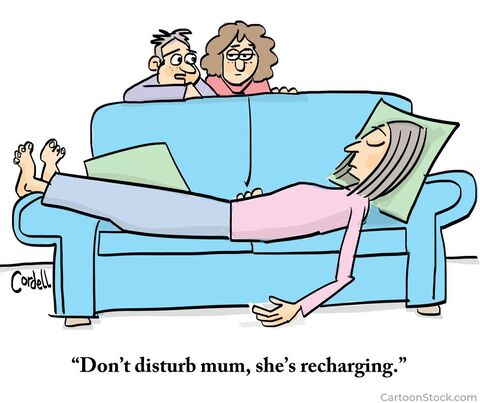
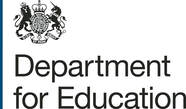
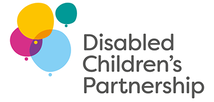




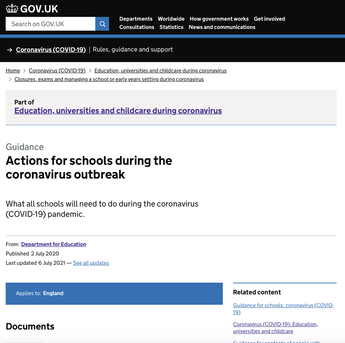
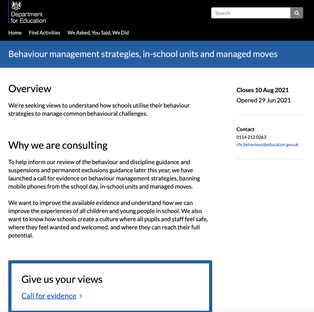







 RSS Feed
RSS Feed







